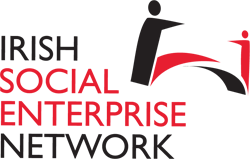Taken from: https://www.orbidalgroup.com/tender-tips-orbidal/blogs/what-is-social-procurement/
Governments and contracting authorities have a responsibility to ensure they leverage their buying power to achieve a social value, rather than simply getting the lowest priced option. We are delighted to see the many positive policy measures announced in the recent National Social Enterprise policy for Ireland published last month.
Orbidal are strong advocates for the positive role public procurement can play in strengthening the social enterprise sector in Ireland. We’re looking forward to working with public bodies, the OGP and of course the many exciting social enterprises to support these policy measures, in particular, the three specific measures outlined by the Government to improve market access for social enterprises:
–Support capacity-building for social enterprises in relation to procurement processes through workshops and training.
-Work with stakeholders to identify how to improve opportunities for social enterprises in the business-to-business supply-chain and in public procurement.
-Through the Social Considerations Advisory Group, help policy makers to better understand how procurement can be used to facilitate the advancement of social policy objectives within appropriate and structured public procurement guidelines.
Here, alongside our experts, Chris MM Gordon, CEO of the Irish Social Enterprise Network, provides an overview of what social procurement is and what it means for your business as both a buyer and supplier of goods and services.
What is Social Procurement?
Social Procurement is an approach to purchasing products and services that takes into account the economic, environmental and social impact of an organisation’s buying choices.
It refers to using money that will already be spent by Governments or private companies to generate benefits beyond the goods and services required, such as reducing greenhouse emissions, eliminating slave labour, avoiding plastics, tapping into renewable energy sources and more.
As part of his role as CEO of the Irish Social Enterprise Network, Chris MM Gordon adds: “In our role advocating for social enterprises (organisations and companies that have a defined social and/or environmental mission), we see the positive gains to society in employing those people that are socially excluded or marginalised getting paid employment with support adapted to their needs.”
“We believe social enterprises are best placed to win contracts that identify these clauses. However, even if social enterprises don’t win these contracts, every enterprise has the ability to demonstrate how the community or wider society benefits.”
What are the Drivers of Social Procurement?
Social procurement is emerging as a means for Government and private sector institutions to leverage their existing purchasing into an added value outcome. They are now moving their purchasing from being a business transaction to get the lowest priced option to using purchasing to also achieve a social value.
Value for money is not just about price and quality any more. Governments and corporate buyers now consider broader social, cultural and environmental outcomes. Many RFTs (Request for Tenders) now specify the social impact of providing a service as part of their scoring attributes when awarding contracts.
What Does Social Procurement Mean for Buyers?
If you’re a private or Government organisation looking to secure goods or services through a tender process, social procurement (or community benefit clauses) allows you to create a positive impact with money that is already being spent.
Social procurement i.e. creating a benefit beyond the purchase of goods and services, enables buyers to support local economies, have a positive impact on the environment, create more jobs and increase employee wellbeing.
What Does Social Procurement Mean for Suppliers?
Social procurement is not about a complete overhaul of your procurement process, it’s about providing additional value.
Suppliers still need to provide the right goods and the right services to meet the requirements of the tender, but now also need to consider what additional value they can provide.
Social procurement is an opportunity for you to increase your brand awareness as a business-to-business supplier who is committed to help create a sustainable future, thereby increasing confidence in your ability to provide a good or service at the right price whilst also helping to create a better future.
Chris works with social enterprises across the island of Ireland who are actively collaborating with other commercial businesses to win contracts and improve their supply chains. He offers some practical advice to businesses that want to improve their social measurement impact.
“If you are an enterprise or business that is tendering, you could soon find yourself competing with those that measure how the community benefits as a result of you winning a contract. There are a few ways of introducing this way of tendering into your work.”
“You can look at your organisation and what relationships and sourcing is already in place and how you are measuring it. This is called your social impact measurement and can be completed in a variety of ways.”
“You can also hire people who are socially excluded and marginalised and might not have a job otherwise. Many companies partner with Local Employment Services in securing work placements in the contract.”
“You can include social enterprises or other organisations that are measuring their impact in your supply chain. Collaborating with other organisations can have a positive effect on the final piece of work and can positively affect your organisation.”


